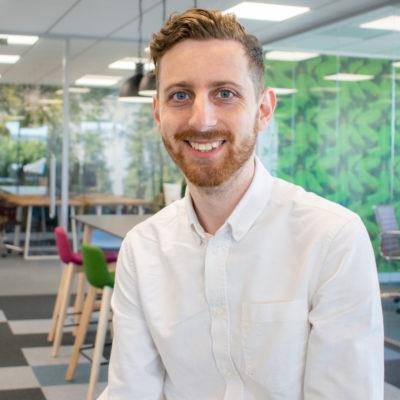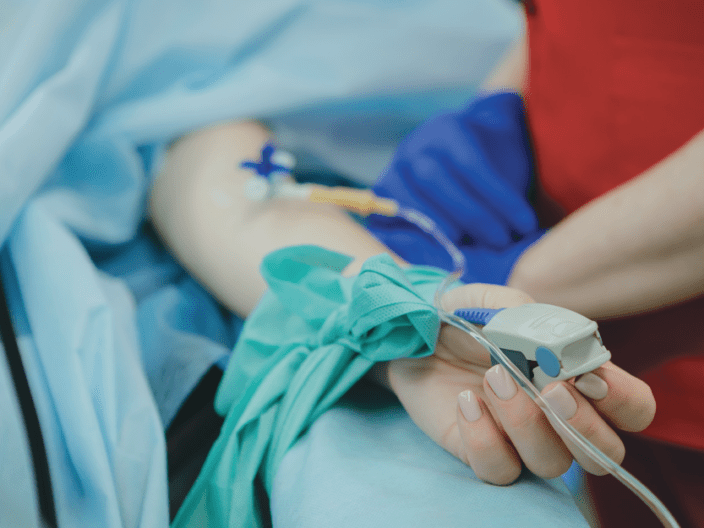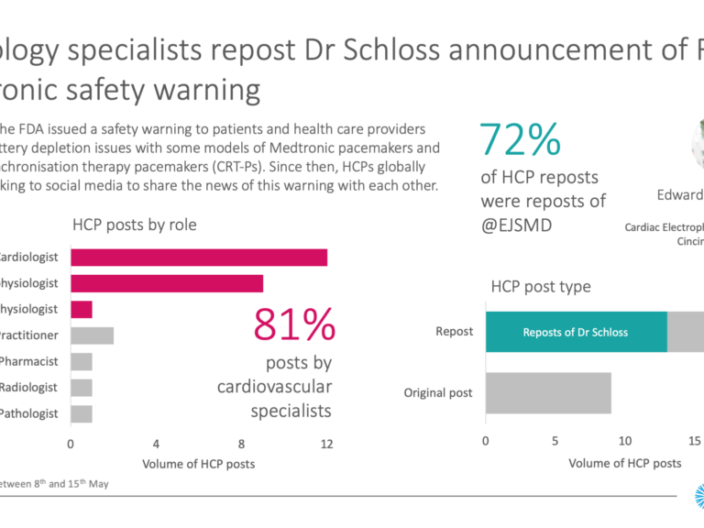Each year newly graduated medical students in the US nervously wait by their phones or computers to see the results of the National Resident Matching Program (NRMP). Also called The Match, these healthcare professionals (HCPs) are waiting to see which residency training program they will attend.
Over the past few years we have observed them joining their fellow applicants on social media to wait the tension out together, celebrate success and commiserate those who are left disappointed.
And this trend has been growing: from around 2,000 posts in 2018 to nearly 15,000 and counting in 2021. However, those using the hashtag are not exclusively medical students going through the process. Wider online communities of healthcare professionals have formed, including more senior physicians giving advice to students and engaging in the conversation.
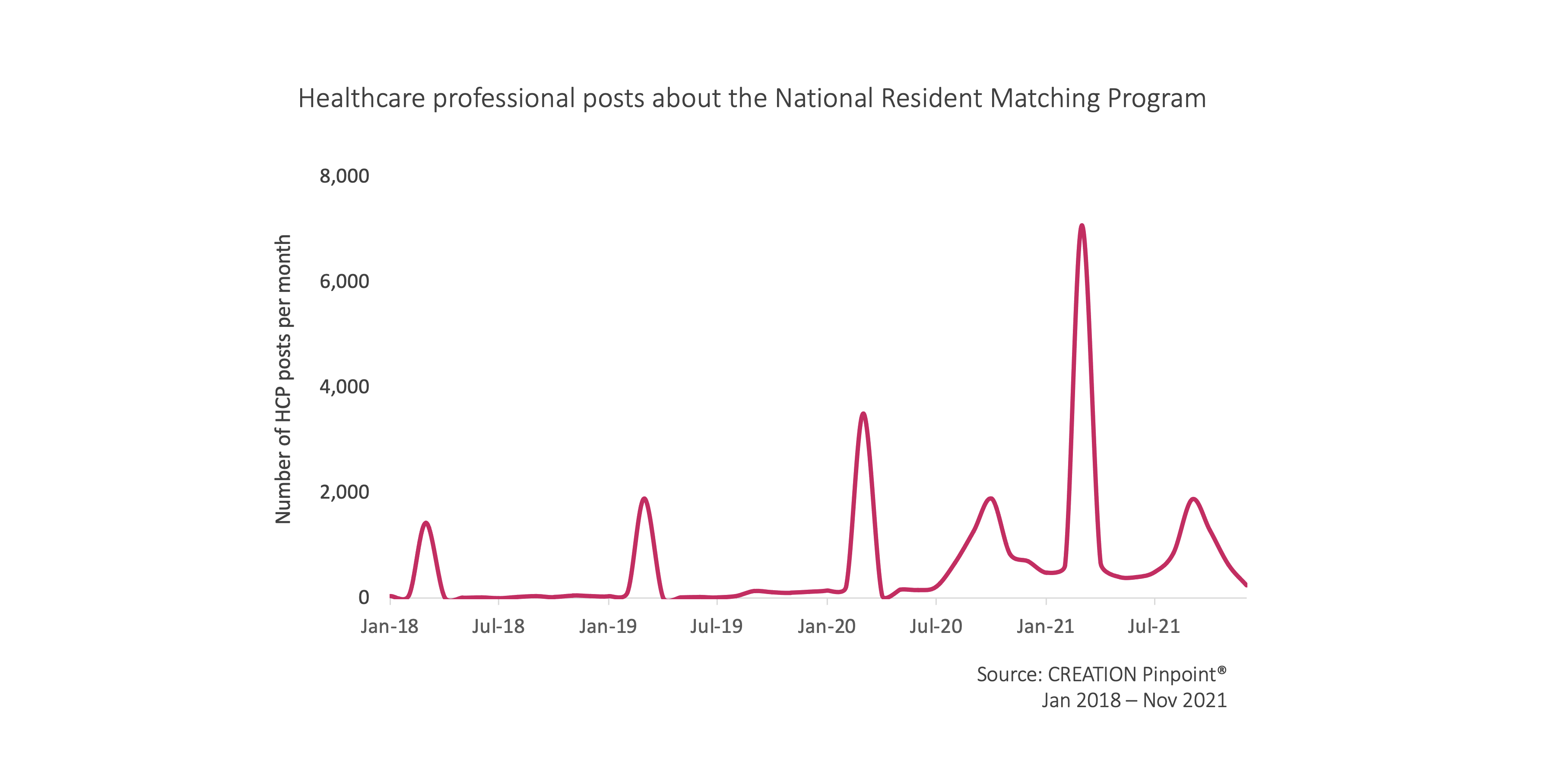 Giving applicants advice
Giving applicants advice
Rashmi Advani, Gastroenterology Fellow at Stony Brook Medicine, New York, shared various threads with tips for gastroenterology fellowship hopefuls. In one of these threads in September she gave five key pieces of advice for her peers, including one point of personal experience which went against the flow of popular opinion and of “People/sdn/stats [trying] to tell you otherwise”.
These posts were not just engaged with by students but also other fellows, program directors and medical professors. Responding to her posts, Matthew Whitson, the GI Program Director at Northwell Health in New York, affirmed the advice saying “This is absolutely correct”.
🥁 Drumroll for PART 3 of “How to MATCH into GI fellowship: Post-Interview Tips” 🔥 with @mishalreja !
Questions?
1/7#gastroenterology #gifellowship #gifellows #residency #internalmedicine #match2021 #matchtips #medicalschool #medicalstudent #GITwitter pic.twitter.com/L3SoqjN9AI— Rashmi Advani, MD, ABOM-D (@AdvaniRashmiMD) September 13, 2021
Using social media to engage with the process
A number of professors and program directors joined in the social community too in order to publish updates about their involvement. Daniel Gih is an Associate Professor and Director of Education at the University of Nebraska Medical Center. As well as giving his own advice to medical students he also shared about the Medical Center’s progress with candidates, such as in January when they announced there were 66 individuals going to be interviewed.
Today's the day! Residencies are reviewing apps for #Match2022.
Quick advice for students:
➡ If you genuinely like a program & it fits well aligns with your goals, apply now! (Don't wait.)
➡ Double-check & release ALL your info (scores and LORs) for a holistic review
🍀🤞 pic.twitter.com/9XGsmIBNZG— Daniel E. Gih MD (@DrDanielGih) September 29, 2021
The Match can be a life changing program as HCPs-in-training are given opportunities around the country to learn and follow a path into a specialty that will define their practice and career. As well as using the general hashtags to discuss the Match, such as #Match2022, #MDmatch and #MatchDay2021, HCPs also use this time to start to identify with their speciality peers online.
Bringing together the specialty community
Some of the most used hashtags within HCPs’ conversations related to specialty matching focused on general surgery, pediatrics, orthopedics and pathology.
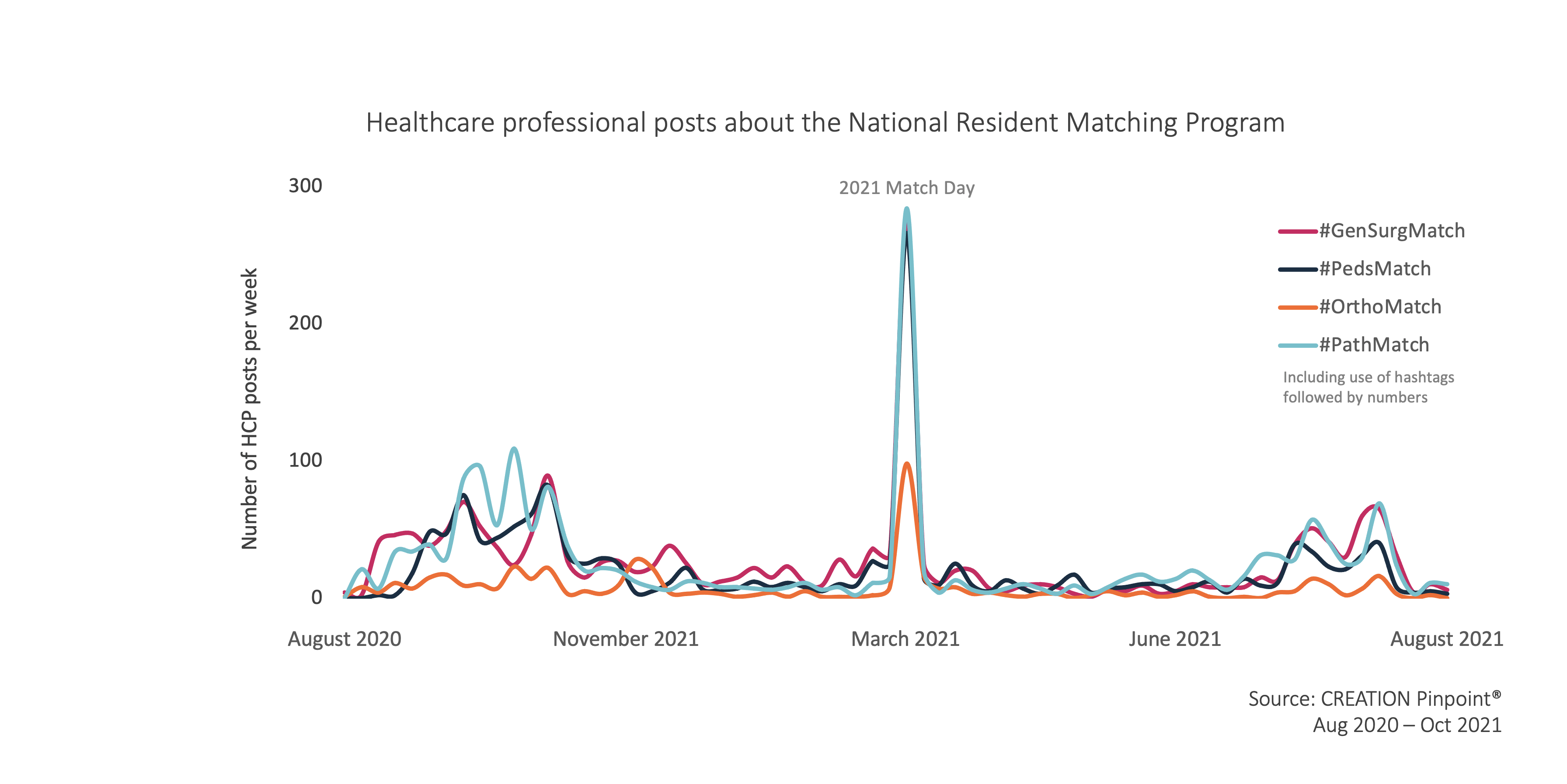
Hematopathologist, Associate Professor and Vice-Chair of Education at Loyola Pathology & Laboratory Medicine, Kamran Mirza is an example of someone who is using these specialty hashtags to bring together those individuals. He is one of the most active HCPs using Match hashtags (287 original posts) as he often uses the hashtag not directly in the context of the Match program.
By including the hashtag #pathmatch22 alongside other pathology hashtags such as #hemepath and #path2path Mirza is building a subnetwork of pathologists and pathology-hopefuls sharing education, resources and latest updates.
Amazing time discussing #ClonalHematopoiesis with the fantastic @sanamloghavi @DanielleHammo20 and @rosslevinemd – thank you @pathologistmag #leusm #hemepath #pathmatch22 #path2path
Register today! https://t.co/New1yeObRX
— Kamran Mirza – کامران مرزا (@KMirza) November 16, 2021
Online healthcare professional communities
When analysing the online conversation in certain therapy areas or around events we often find that there is a small group of individuals that are the core of the conversational network. Many can be peripheral, adding thoughts and comments only infrequently, many more would be “lurkers” just there to read, learn and view but not actively take part.
But when the core are well-connected, influential, far-reaching among healthcare professional peers, it creates the opportunity to build a solid online community where HCPs are happy to collaborate, learn and be at the forefront of medical innovation.
Understanding the drivers behind these HCP networks opens up the opportunity for health stakeholders including pharma to learn, contribute in a value adding way to the online conversation and to create long-lasting relationships with HCPs. For more advice on building meaningful customer engagement with data-driven digital insights read about four areas to focus on from our Associate Director of Health Strategy, Anni Neuman, or get in touch, we’d love to help.
 By Jamie Doggett
By Jamie Doggett 
